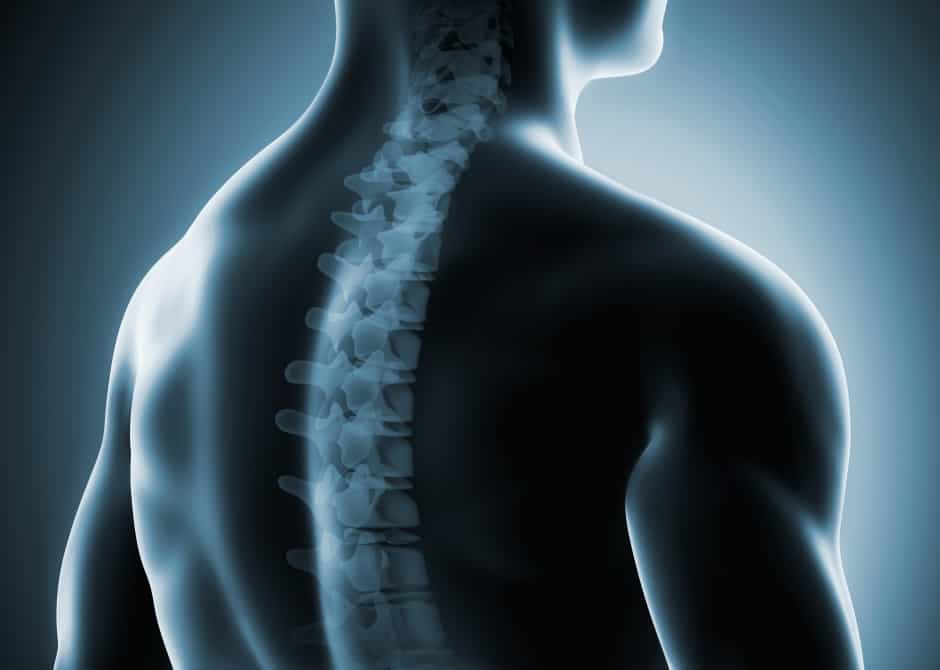The answer may lie in research underway at The Ohio State University Wexner Medical Center Neurological Institute – research that in the summer of 2018 received a transformational $10 million gift from the Belford Family Charitable Fund.
“A wheelchair is one of the most symbolic hallmarks of spinal cord injury – when we think of spinal cord injury, we think of paralysis,” said Philip Popovich, PhD, chair of the department of neuroscience at Ohio State and director of Ohio State’s Center for Brain and Spinal Cord Repair. “But if you ask people ‘What are the top three things you wish you could change about your life with a spinal cord injury,’ they will list a whole host of other things before they talk about paralysis.”
A spinal cord injury puts a person at higher risk for high blood pressure, incontinence, infection, obesity and diabetes – all things that can make day-to-day living difficult. And then there is the threat of an early death: Largely because of these secondary issues, the mortality rate for people with spinal cord injuries has not changed in more than 20 years.
The Belford Family Charitable Fund gift will allow researchers to focus on the type of innovative science necessary to improve those rates.

“The Belford gift is a game-changer for Ohio State in a number of ways,” Popovich said.
“It establishes a lifetime commitment to promote spinal cord injury research at Ohio State. This legacy will ensure that Ohio State continues to lead the way in innovative research and patient care for this difficult to treat neurological disease – that’s a rare gift. It also will allow us to test difficult and important questions more quickly than would be possible with only federal funding. Accelerating discovery should allow us to move more quickly to the clinic, where we can tell patients, ‘We’re ready, we think we have something that can help you.’”
The Belford family decided to make this gift out of a sense of hope: The family is committed to making life better for people with spinal cord injuries.
In a statement, the Belford Family Charitable Fund said: “We are honored to be able to give this research team the resources to improve the lives of others. Ohio State’s team already is leading the world in spinal cord injury treatment and research, and we look forward to their future innovations and discoveries – discoveries that we hope will make for longer, healthier lives for people with spinal cord injuries.”

Spinal cord injury researchers Phillip Popovich, PhD, Dana McTigue, PhD, and Jan Schwab, MD, PhD, will lead the center, which will focus on novel approaches in medical research, patient care, education and training to redefine spinal cord injury care.
Their work is showing promise in saving and re-growing neurons vital to maintaining health after a spinal cord injury, and in improving secondary infections for spinal cord injury patients.
Some of that work already is underway: Recently published research from this team shows that probiotics – good bacteria that can help improve a person’s gut microbiome – could strengthen the connection between a person’s nervous system and immune system, leading to improvements in healing and staving off the types of secondary infections that cause such trouble after a spinal cord injury. Previous research by Ohio State has shown that spinal cord injuries can cause a “paralysis” of the immune system. Patients with injured spinal cords are 37 times more likely to die of an infection than someone without a spinal cord injury.
But more work needs to be done to make real advancements that improve the lives of people with spinal cord injury – and that work would not be possible without the Belfords’ gift.
“This gift will allow us to continue advancing basic and translational neuroscience research at the university, with a focus on supporting efforts to repair, protect or restore function in order to enhance recovery of the diseased or injured nervous system,” said Schwab, professor, physician-scientist, and the William E. Hunt MD and Charlotte M. Curtis Chair in Neuroscience.

As of 2016, an estimated 282,000 people are living with spinal cord injuries in the United States, according to the National Spinal Cord Injury Statistical Center (NSCISC).
Each year about 17,000 Americans suffer a spinal cord injury. Vehicle crashes, sporting related injuries and accidental falls are currently the leading causes of injury.
“Your immune system requires your spinal cord in order to function properly. When you injure your spinal cord, you take that immune system “offline”, and communication is completely disrupted,” said Popovich. “It’s now clear that how the brain and spinal cord communicate with the immune system is important for virtually every human disease, including spinal cord injuries.”
The Belford Center will focus on the treatment of spinal cord injuries as a systemic disease to reduce the onset or impact of complications associated with spinal cord injury, including diabetes, inflammation or infectious, metabolic and cardiovascular diseases and other medical complications.

“Ohio State is one of the only places looking at this whole body approach for spinal cord injury,” said McTigue, a professor and vice chair of research in the department of neuroscience and in the Center for Brain and Spinal Cord Repair. “The more we can understand, the better we can treat things when they go wrong.”
The Belfords’ gift will create a current-use fund to support the mission of the center, along with two endowed chairs in spinal cord injury and a research innovation endowed fund.
In the past decade, Ohio State’s Center for Brain and Spinal Cord Repair has trained more than 200 researchers worldwide – many of whom have gone on to lead other spinal cord injury research teams in the United States and abroad.
How you can help
Donate by Mail
The Wexner Medical Center Development Officec/o The Ohio State University Foundation
P.O. Box 736096
Chicago, IL 60673-6096

